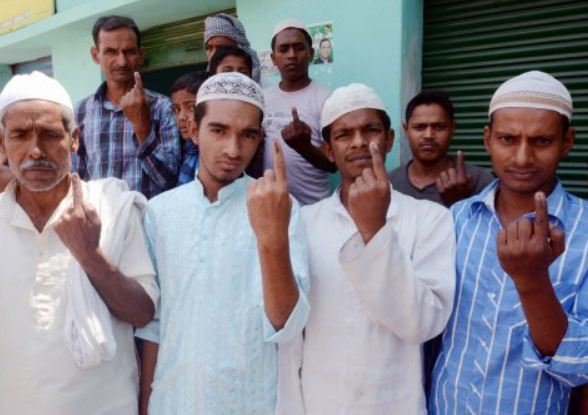– Md. Sami Ahmad
Two recent notifications by the general administration department of the Bihar government shocked the Muslim community and the secular section of the state, as there was no representation of the Muslim community in the list of postings of SDMs (Subdivisional Magistrates). This led to a debate over the Nitish Kumar-led government’s ‘secular’ credentials, that runs with the help of BJP.
An investigation by Radiance revealed that Muslim representation at key posts in the state is almost nil. Shockingly, the list of 101 SDMs contains only one Muslim name. The list of SDPOs (Subdivisional Police Officers) could not be fetched but roughly there are three to four Muslim SDPOs in the state.
There are thirty-eight districts in the state, but only one Muslim is currently working as DM (District Magistrate). Similarly, there are forty police districts in the state but only two Muslims are the chief of district police (SP or SSP). The only Muslim DM Arif Ahsan holds a small district, Sheikhpura, which is considered smaller than some subdivisions. One of the two Muslim SPs is Inamul Haque Mengnoo who also heads a small district Arwal.
Out of the nine divisional commissioners, only one, Safina AN, is a Muslim who heads the important Magadh Commissionary. There is no Muslim DIG in the nine police range.
There are 38 DDCs cum CEOs of District Boards and only one of them is Muslim. The post of DDC (Deputy Development Commissioner) is considered very important for the district’s rural development.
According to the Bihar caste-based survey 2022-23, the population of Muslims is more than 17.7 percent. If that is considered one basis of representation in top field postings in the administration, there should have been around 6-7 Muslim DMs and an equal number of Muslim SPs. That way, there should have been 17-18 SDMs, and around 20 Muslim SDPOs.
It may be recalled that Chief Minister Nitish Kumar always talks about the ‘works’ he has done for Muslims but this poor representation of Muslims in the field bureaucracy raises grave concerns. It is an election year in Bihar and this could be very pertinent issue in the state.
Commenting on the drastic decline of Muslim officers in key field posts, senior journalist Prof. Abdul Qadir says that the reason for this dismal representation seems to be more political than administrative. He told Radiance, “This is New Bihar, the Bihar where a politically anaemic, bodily weak and less oriented man presides over a government remote-controlled by a coterie of opportunist politicians, time servers and ex-bureaucrats who have virtually assumed the guardianship of downhill-bound Nitish. Earlier, Nitish had to face BJP pressure to remove the then Chief Secretary Amir Subhani.”
He says that though most of the Muslims deployed at key positions have done next to nothing for the community, and many of them, in order to appear neutral, have discriminated against the Muslims. “Still, such dismal representation of Muslims in administratively critical positions is problematic for the social fabric of the bureaucracy,” observed Prof. Abdul Qadir.
When asked to comment on this dismal representation of Muslims in top field postings, Anjum Ara, spokesperson of Nitish Kumar’s JD(U), avoided a direct answer but claimed, “JD(U) believed in social justice, inclusivity and equal representation of every section.” She added, “Appointments on administrative posts should be based on merit, and transparency should be maintained. All sections and communities must get the right opportunities and representation.”




